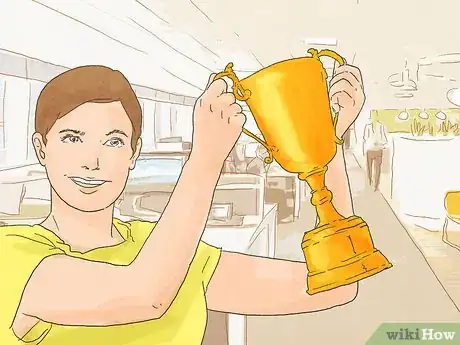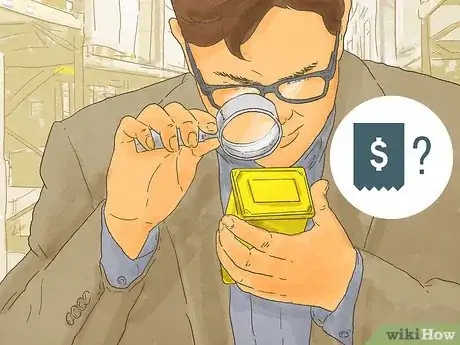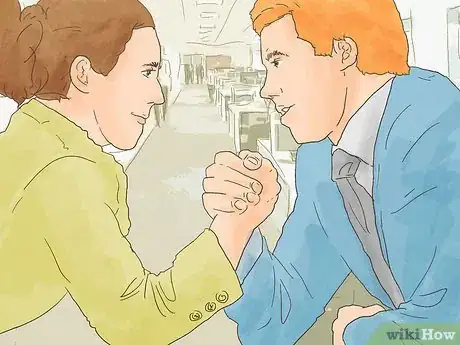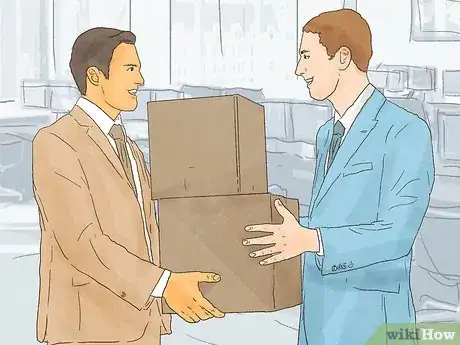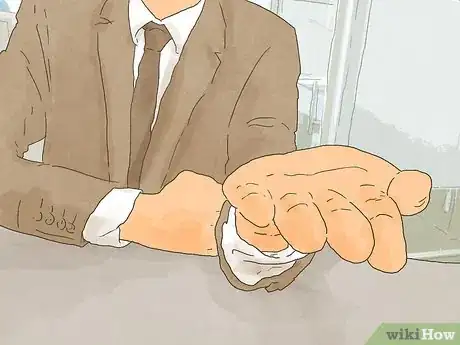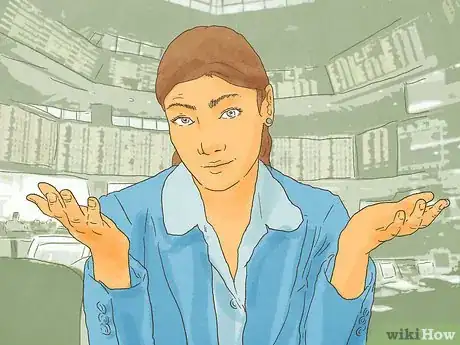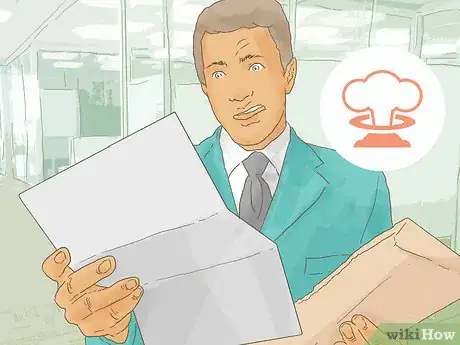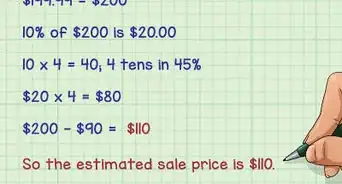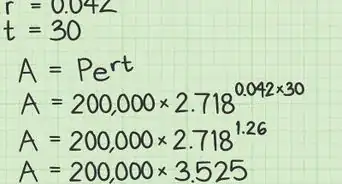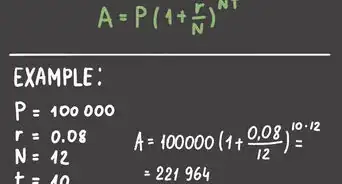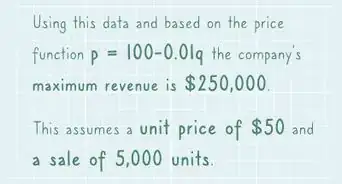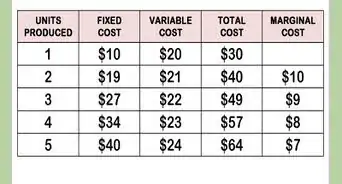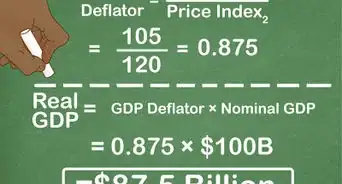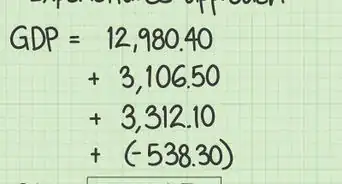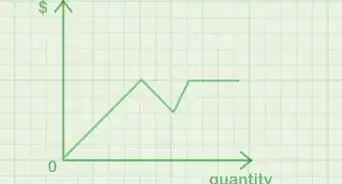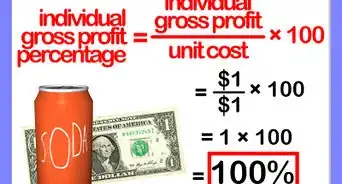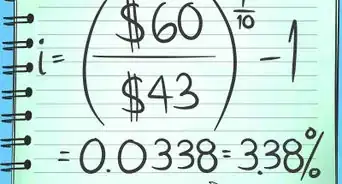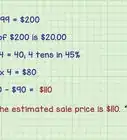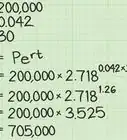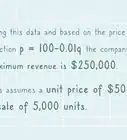This article was co-authored by wikiHow Staff. Our trained team of editors and researchers validate articles for accuracy and comprehensiveness. wikiHow's Content Management Team carefully monitors the work from our editorial staff to ensure that each article is backed by trusted research and meets our high quality standards.
This article has been viewed 15,535 times.
Learn more...
Economics is the study of how humans act and make decisions about how they use resources. To think like an economist, then, you must learn about major principles of human action and interaction. While this may seem overwhelming, there are several things you can do to better think like an economist. By learning the basic tenets of economic thought and by critically considering human action, interaction, and focusing on certain economic problems, you’ll be better equipped to think like an economist.
Steps
Implementing Economic Theory into Your Life
-
1Use self interest to motivate yourself and others. When acting on just about anything, people will seek their own benefit. As a result, you shouldn't be ashamed to use self interest to motivate others or to act to benefit yourself.
- People will push back or resist doing things if they don’t see a benefit in completing the action. For example, your employees won't work longer or harder unless they get compensated (or realize another type of benefit).
- Incentives work. For example, give an employee a bonus for achieving a milestone ahead of time.[1]
-
2Embrace the idea that value subjective. While people may only act if they see it benefiting themselves, it is important to realize that the way you value things may be different than someone else.
- It is impossible to establish an objective value system for all people. For example, you can't just declare that a chair is objectively worth $5. While the chair might be worth $5 to you, it could be worth more or less to someone else.
- People from different cultures around the world may view self-interest differently. They may see acting for the good of the community as something that directly benefits them.
- This idea is known as the subjective theory of value. Most economists today embrace it.[2]
Advertisement -
3Make decisions knowing that you may be giving up other opportunities. Economists understand that people constantly consider trade-offs and alternatives to different actions. In other words, people are constantly considering what could be gained if they did something else.
- Always consider the opportunities you may miss by picking one course of action. For example, if you choose to pursue a high paying career, consider the loss of family time and the extra stress you may incur.
- Many economists articulate this idea as the “marginal benefit” of one action over another. An example of this would be if you offered a child a dollar to clean their room or fifty cents to walk the dog. The child will weigh these two choices against each other to determine what benefits them more. They might decide that they’d rather walk the dog for less money but have extra time to watch TV, or they might decide that sacrificing more time for more money is worth losing their TV time.[3]
Allowing Economics to Influence Your Interactions With Others
-
1Embrace competition. Competition is a constant factor in human interaction. Not only do businesses compete, but individuals compete for resources all the time.
- Use competition as a way to drive yourself and others. For example, when completing a project at work, consider judging yourself against other workers completing similar projects. This may drive you to work harder.
- Competition often results in “creative destruction.” Through the competitive process, certain individuals or firms decline and make room for new innovative entities to dominate the marketplace.[4]
-
2Think about the implications of any choice you make. Interactions between people constantly introduce new and unplanned factors into the decision-making process. As a result, you should reflect on potential outcomes before you make an economic decision.
- Consider how your spending habits impact your community. For example, if you shop at a local hardware store instead of a big box retailer, you'll likely benefit people who live near you instead of very wealthy people hundreds of miles away.[5]
-
3Rely on fair trade and commerce as a way of building healthy relationships. Ultimately, mutually agreeable exchange tends to foster friendships between people. As a result, when conducting business, treat others fairly with the goal of forming long-term relationships.
- Seek your own self interest, but consider that making someone else happy and treating them with respect might be in your long-term benefit.
- When buying or selling something, consider offering or asking less money if you think you might do a lot of business with the person in the future.[6]
Avoiding Problems
-
1Admit that all things have costs. Realize that all things in an economic system have costs. These costs can be realized in real substantial terms or in the terms of trade-offs.
- Nothing is free. All benefits come at some sort of cost to someone. For example, if the residents of a community pay to maintain a park, other people who live outside the community but use the park are “free riders” – they do not realize costs associated with maintaining the park.[7]
-
2Accept that correlation is not causation. Many economists are dedicated to the idea that correlation is not causation. What this means is that just because two things appear similar or appear to be connected, doesn't mean they are.
- Two things that appear related may not be related at all. For example, the fact that the number of radios owned by Americans in the early twentieth century increased along with the number of squirrels living in Central Park in New York City does not dictate a connection or causal relationship between the two.[8]
-
3Know that your actions may have unintended consequences. Before taking any action, understand that it may have repercussions that you may not anticipate.
- What this means is that economists – or anyone else – can’t predict an outcome because there are often unforeseen interactions that occur. For example, if a government lowers taxes with the intent of stimulating the economy, it could harm the economy because tax revenues along with government expenditures would decrease – harming industries that are dependent on government contracts.[9]
Community Q&A
-
QuestionWhat does it mean to think like an economist?
 DonaganTop AnswererIt means to consider the true and sometimes hidden costs of goods and services.
DonaganTop AnswererIt means to consider the true and sometimes hidden costs of goods and services.
References
- ↑ https://www.minneapolisfed.org/publications/the-region/thinking-like-an-economist
- ↑ https://www.minneapolisfed.org/publications/the-region/thinking-like-an-economist
- ↑ https://www.minneapolisfed.org/publications/the-region/thinking-like-an-economist
- ↑ http://www.econlib.org/library/Enc/Competition.html
- ↑ http://www.scirp.org/journal/PaperInformation.aspx?paperID=47302
- ↑ http://www.iep.utm.edu/milljs/
- ↑ https://www.minneapolisfed.org/publications/the-region/thinking-like-an-economist
- ↑ https://www.minneapolisfed.org/publications/the-region/thinking-like-an-economist
- ↑ https://www.minneapolisfed.org/publications/the-region/thinking-like-an-economist
